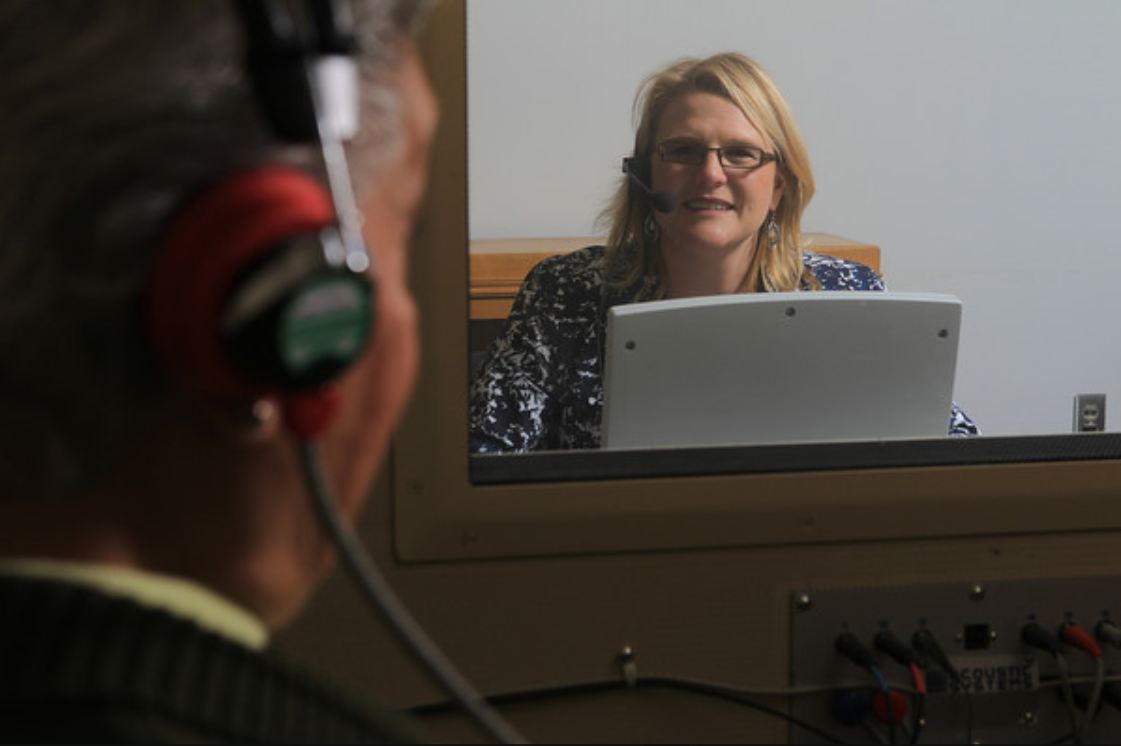Audiology Clinic

About the Audiology Clinic
The BGSU Speech & Hearing Clinic has been in operation for over 60 years. It is one of the University’s best-kept secrets. The clinic is open to both the University community AND the public year round. We welcome children and adults of all ages, no referral is necessary.
The Audiology department was recently renovated and is up & running with state of the art equipment. The clinic is staffed by licensed and certified audiologists, Kimberly Traver and Susan Vining, as well as speech-language pathologists (SLPs). SLP graduate students also work in the clinic under supervision. The Audiology Clinic provides a wide range of diagnostic & therapy services including:
- Comprehensive, diagnostic hearing tests
- Selling and repairing hearing aids (specializing in the latest digital technology)
- Selling hearing aid batteries
- Selling assistive listening devices like TV Ears, smoke detectors, alarm clocks & amplified phones.
Hearing Self-Test
Have questions or concerns about your hearing? The following questions will help you determine if you have a hearing loss and need to have your hearing evaluated:
- Do you have a problem hearing over the telephone?
- Do you hear better on one ear than the other when you are on the telephone?
- Do you have trouble following the conversation with two or more people are talking at the same time?
- Do people complain that you turn the TV volume up too high?
- Do you have to strain to understand conversation?
- Do you have trouble hearing in a noisy background?
- Do you have trouble hearing in restaurants?
- Do you have dizziness, pain, or ringing in your ears?
- Do you find yourself asking people to repeat themselves? Do family members or co-workers remark about your missing what has been said?
- Do many people you talk to seem to mumble (or not speak clearly)?
- Do you misunderstand what others are saying and respond inappropriately?
- Do you have trouble understanding the speech of women and children?
- Do people get annoyed because you misunderstand what they say?
If you have answered yes to more than two of these questions, you should have your hearing tested by a certified audiologist.
Communicating With the Hearing Impaired
The following are tips for communicating with the hearing impaired individual:
- Don’t start to speak to a hard-of-hearing person abruptly. Attract their attention first by calling their name or touching them on the shoulder.
- Keep the distance between you and the hearing-impaired person close. Don’t talk to him/her from another room.
- Face the hearing impaired person and talk in a normal voice. (Don’t shout) Speak slowly and clearly without exaggerating words.
- Keep your hands away from your face while talking. If you are eating chewing, smoking, etc., while talking, your speech will be more difficult to understand.
- Turn off/down noisy distractions before speaking when possible (i.e. turn the water faucet off, turn the TV down).
- Try to avoid sudden changes of topic. If the subject is changed, tell the hard-of-hearing person, “We are talking about…”.
- A hearing-impaired person may not hear as well as usual when he/she is sick or tired.
- Most importantly, a hearing aid is NOT a cure for a hearing loss; it is only an aid. Patience and understanding are needed for the hearing impaired person to be a successful hearing aid user.
Contact Information
If you have any questions or would like to set up an evaluation, please feel free to call the BGSU Speech and Hearing Clinic at 419-372-2515.
Updated: 08/14/2019 11:39AM
